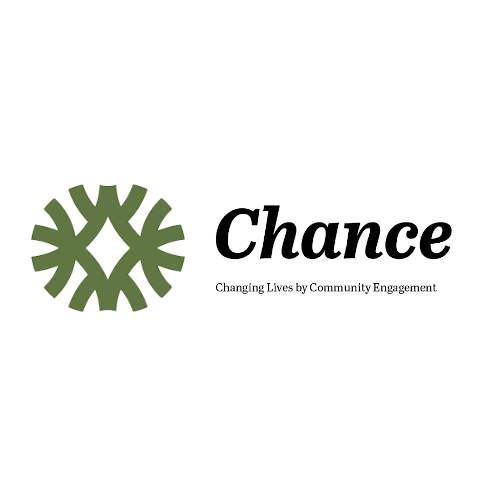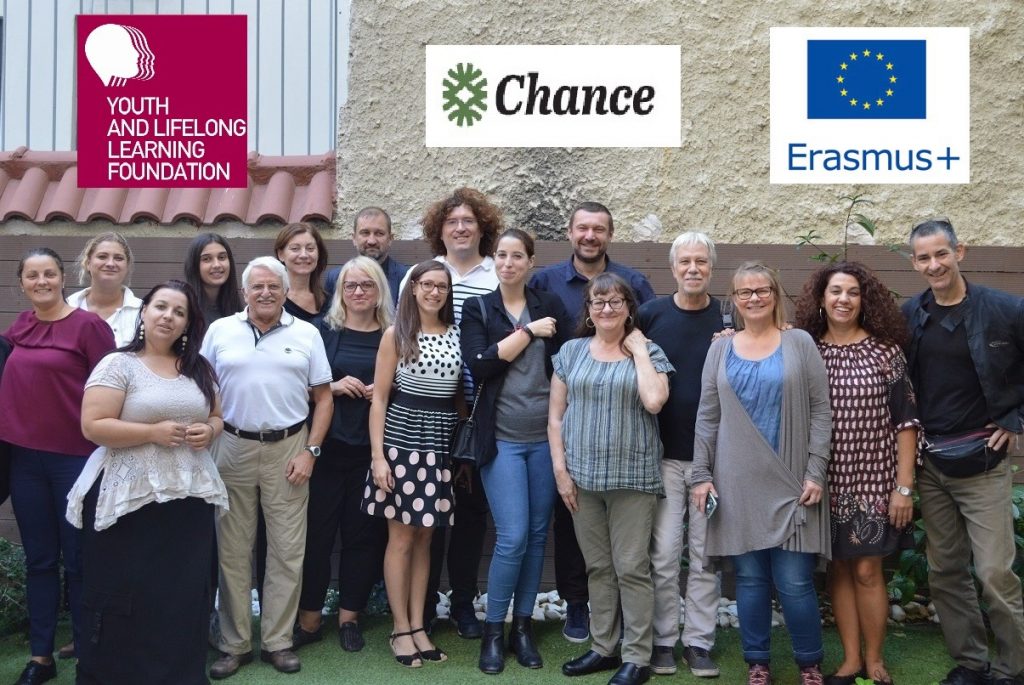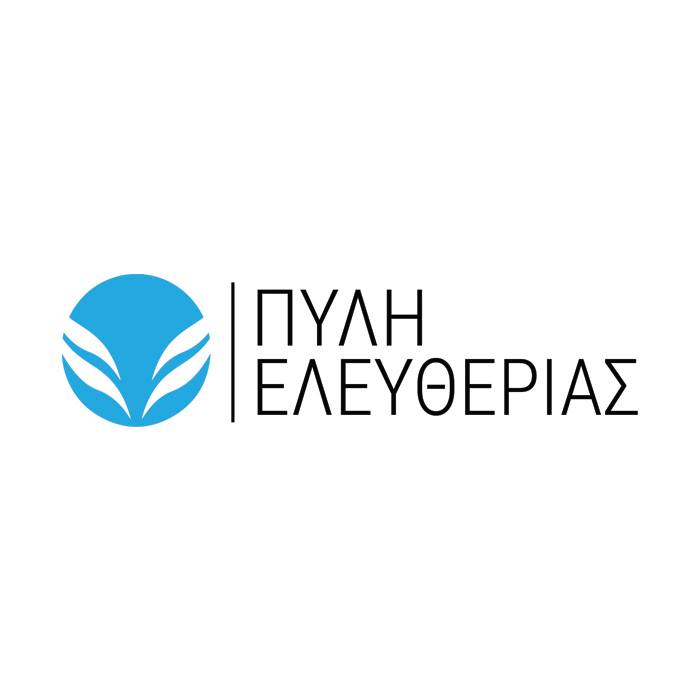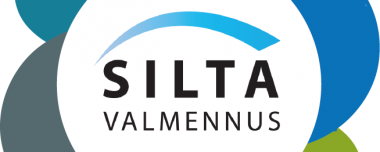
The ‘CHANCE’ project

The ‘CHANCE’ – Changing lives by community engagement
CHANCE is a community-oriented project co-founded with Erasmus+ Programme of the European Union and coordinated by Freedom Gate Greece. Its mission is contributing to the European inmates’ wellbeing through enforced community-based measures. To achieve that, CHANCE aims to develop a set of child-friendly and community-based recommendations in Europe

Professionals from youth justice services, local authorities and NGOs will benefit the most. In turn, the children and young people faced with these sanctions will be the indirect beneficiaries. The transnational project will build on existing good practices and assess them in different cultural and judicial contexts to extrapolate them to the European level.
The expected results of this project will be to develop and transfer the implementation of innovative practices at the organisational, local, regional, national or European levels. They should have positive and lasting effects on the political systems in which these actions are framed, both for the participating organisations and for the organisations and persons directly or indirectly involved in the organised activities:
• Promote the implementation of alternative measures to deprivation of freedom for children in conflict with the law.
• Improve the skills of professionals working with children in conflict with the law, increase their effectiveness and broaden the knowledge, as well as the quality of the activities carried out.
• Awareness raising through the dissemination of appropriate information on the positive effects of the implementation of community-based measures.





Partners
Coordinator
• Freedom Gate Greece: was founded in June of 2012 with a goal of fighting every form of social exclusion as well as promoting the psychosocial support of vulnerable groups. Our actions focus on the support of prisoners’ familiar environment with special care to underage children of the family, on rehabilitation programs for juvenile offenders, on support programs for incarcerated parents and on research. Having already developed connections with organisations such as Eurochips (European network for children with imprisoned parents in which we are members) and Eurochild (in which we are also members), which have great experience in similar actions, we have designed our interventions using evidence-based practices, adjusted to Greek reality. We hope that our organisation will contribute actively and essentially to the fight of social inequality, injustice and prejudice that exists for so many centuries. Considering the disruption that the imprisonment of a person induces to the family, we hope through psychosocial support programs to provide the family with a different point of view; a “new life” that differs from the shame, the isolation, the stigmatization and the resignation of a family re-connection.
Partners
• Probation Services of Greece: The Greek probation service is a relatively new service, which was instituted in 1991 mainly for carrying out the implementation of two community measures introduced in 1991 (Law no. 1941/1991): the community service order and the suspended sentence with probationary supervision. As was stated in the explanatory report of Law no. 1941/1991 “it is necessary to create a service within the courts, which is absolutely crucial in promoting the new measures imported in our penal system”1. The Probation Service for Adults (Ypiresia Epimeliton Koinonikis Arogis -EL) became operational as a public service under the Ministry of Justice in January 2007, when probation officers were recruited and took up their positions. The probation service is also responsible for the following tasks: a) supervising conditionally released prisoners and persons criminally charged subject to restrictive conditions at the pre-trial stage, and b) commissioning social inquiries and writing pre-sentence reports upon request by the prosecutor or judge. Following recent legislation (Law no. 4205/2013), the probation service may also supervise prisoners on home leave in certain cases. On a local level, probation services co-operate with municipal authorities, prefectures, and non-governmental organizations which offer work placements for offenders. Non-custodial measures have a long tradition in the Greek criminal justice system dating more than one century. The suspended sentence, the monetary conversion of the
prison sentence, and the conditional release have been implemented since the beginning of the 20th century. Nevertheless, their application has not been associated until today with the provision of special assistance or support by a specialized service promoting and strengthening offender-community ties.
• Fundación Diagrama, Spain: is a non-profit organisation that has been assisting vulnerable and socially excluded people since 1991, always ensuring the defence and promotion of Human Rights. Diagrama’s main objective is to promote and develop centres, services, programmes and research aimed at prevention, treatment and integration of people in difficult life situations and risk of social exclusion, especially children, young people, families, women and dependents. Fundación Diagrama’s vision is to be a reference point for quality, commitment, good practice and efficiency in the comprehensive care of vulnerable people and those at risk of social exclusion, working daily towards their full social integration. To achieve this, Fundación Diagrama has developed a comprehensive and specialised intervention model, based on the wellbeing of people and of society as a whole, as well as the continuous improvement of its own processes and resources.
• UISP Comitato Territoriale Cirie Settimo Chivasso, Italy: Uisp (Italian Union of Sport For All) is a sports and social promotion association that aims to extend the right to sport for all citizens. Since its foundation in 1948, UISP has affirmed the social value of sport, rights, the environment, health and solidarity. Sport for all is a social good that affects health, quality of life, integration, education and relationships between people, in all ages of life. Such, as it deserves public recognition and protection. For this reason, the UISP, both nationally and locally (where it is strongly rooted and widespread) collaborates with institutions, municipalities, regions, public and private entities to improve people’s well-being. Through its initiatives, UISP aims to enhance the various faces of sport, from the competitive one (with particular attention to the amateur and amateur world) to the choreographic-spectacular one, from the instrumental one (sport for health, well-being, to defend the environment) to the expressive one, with individual or collective practices outside of structured sports circuits, or more innovative ones such as parkour. The great initiatives of sport for all Uisp are further opportunities to network hundreds of cities around the values of sport and inclusion, the environment, health and solidarity. Not only that: there are the events in the area that see the sports clubs affiliated with Uisp as protagonists up to the national finals of the championships, with reviews and tournaments involving thousands of participants. And again the national and international projects, the new ones and those by now consolidated, which have taken root in the territories and in the cities.
• Silta-Valmennusyhdistys ry, Finland: offers youth services, workshop activities, training services, coaching services for special groups and much more. Basic task The basic task of the Bridge Coaching Association is to increase social equality, inclusion and well-being by helping and coaching people in difficult labor market positions to strengthen their ability to work and function and to find their own place in society. Vision We are a responsible partner, a bridge and a pioneer in inclusion, learning and work. Set of values Respect for man Respect for human beings is a cornerstone of the prevention of exclusion. We value a person’s own free will and ability to find solutions to the problems of their lives. As our customer, a person is not the object of change but the implementer of change. Responsibility We act responsibly in our core business and as builders of partnerships in our work community and network. We train for responsibility. Go We work hard and maintain hope. We work systematically to achieve our goals. We are working to remove those structural barriers that cause exclusion and are a threat to normal human life. Succeeding together By sharing our common successes, we strengthen a good work community and work atmosphere. We can only achieve good results in accordance with our goals by cooperating with our customers, their networks and organizations and other partners. We share joint results with customers and partners.
• Asociația Județeană “Sportul Pentru Toți” SUCEAVA, Romania: Suceava County Association “Sport for All” is a non-governmental organization established in 2002 on the basis of Ordinance 26/2000 on Associations and Foundations and Law 69/2000 on Physical Education and Sports. Also in 2002, he received the Sports Identity Certificate from the Ministry of Youth and Sports. AJSPT Suceava is a non-governmental, apolitical and non-profit organization whose purpose is to promote sports for all. The governing body of the association includes a president, a vice-president, a secretary and two members. The association has a number of 200 volunteers who are involved in organizing and carrying out projects. The activity of the association is based on the following financial resources: financing from budgets for public and private projects; donations and sponsorships; membership fees. At local and national level, the association organizes every year almost 20 projects and competitions included in the calendar of the Romanian Sport for All Federation.
• European Strategies Consulting, Romania: is an independent consultancy company specialized in European and international public policies in the field of social, legal and educational development, providing concept analysis, project design, reform implementation, monitoring and evaluation (including need & impact assessment, benchmarking and comparative research). The main focus of the company is criminology and criminal justice, covering issues like prison, probation, electronic monitoring and so on. The main services by our company are: consultancy, evaluation, research and training. ESC members provided consultancy, research and training in Central and Eastern Europe: Albania (probation), Serbia (probation), Montenegro (probation), Moldova (prison & probation), Georgia (probation) and Romania (prison & probation).They also participated in projects situated in Western Europe (Finland, Germany, France, UK), Africa (Algeria) and Middle East (Jordan). ESC is committed to evidence based standards in consultancy and research. ESC is also committed to high standards of ethics.
• UPSDA United Professionals for Sustainable Development Association, Bulgaria: the mission is To assist organisations and people in achieving professional and personal excellence.
• Courage Foundation, Bulgaria